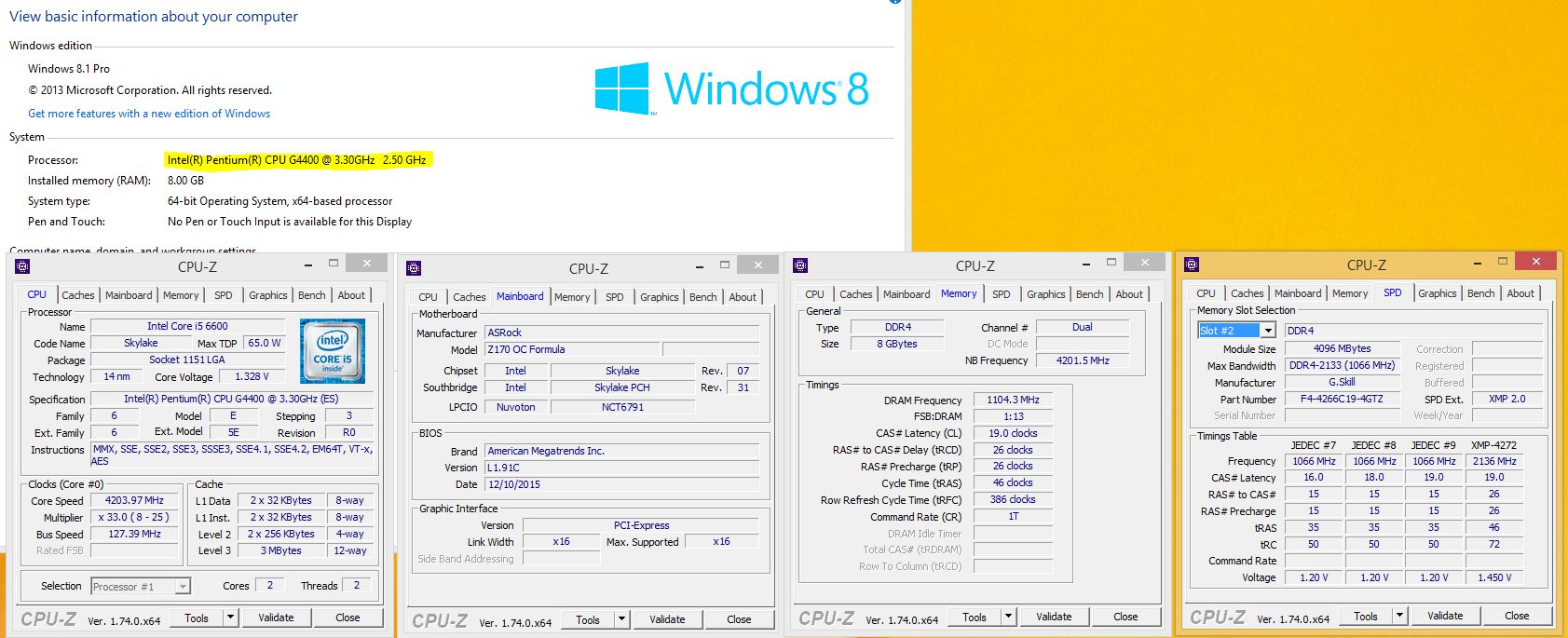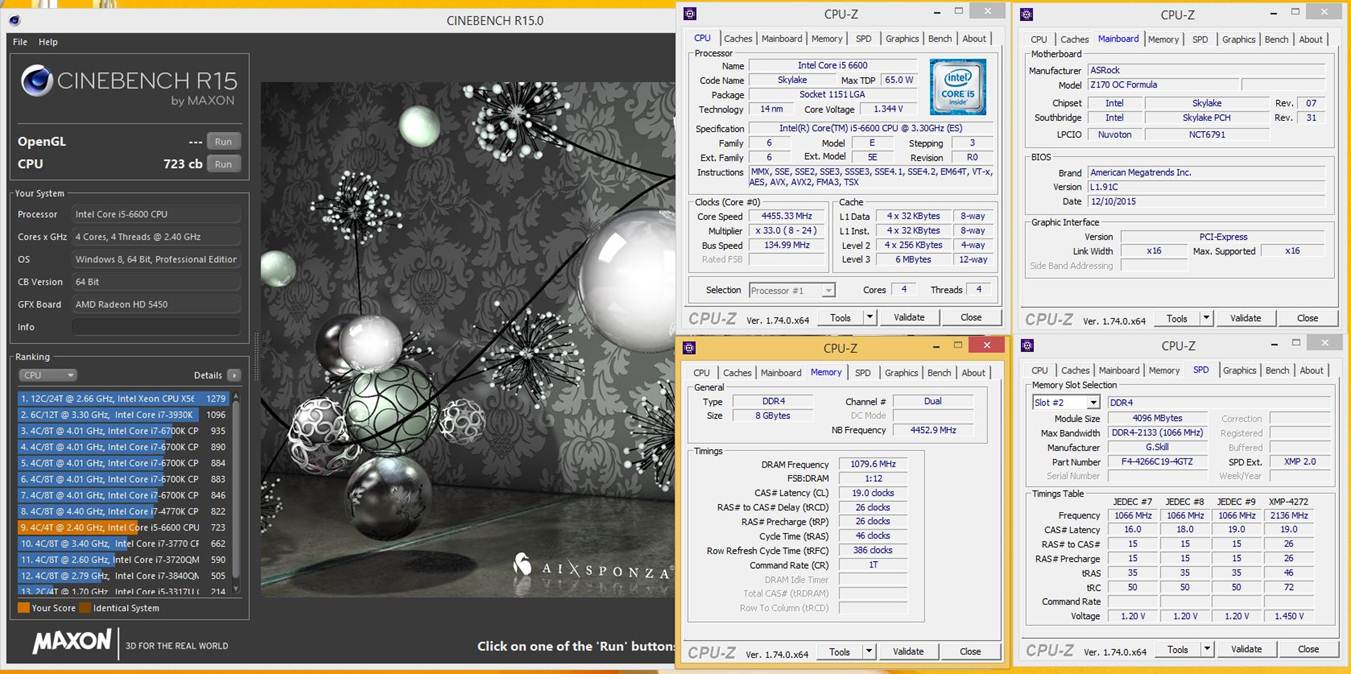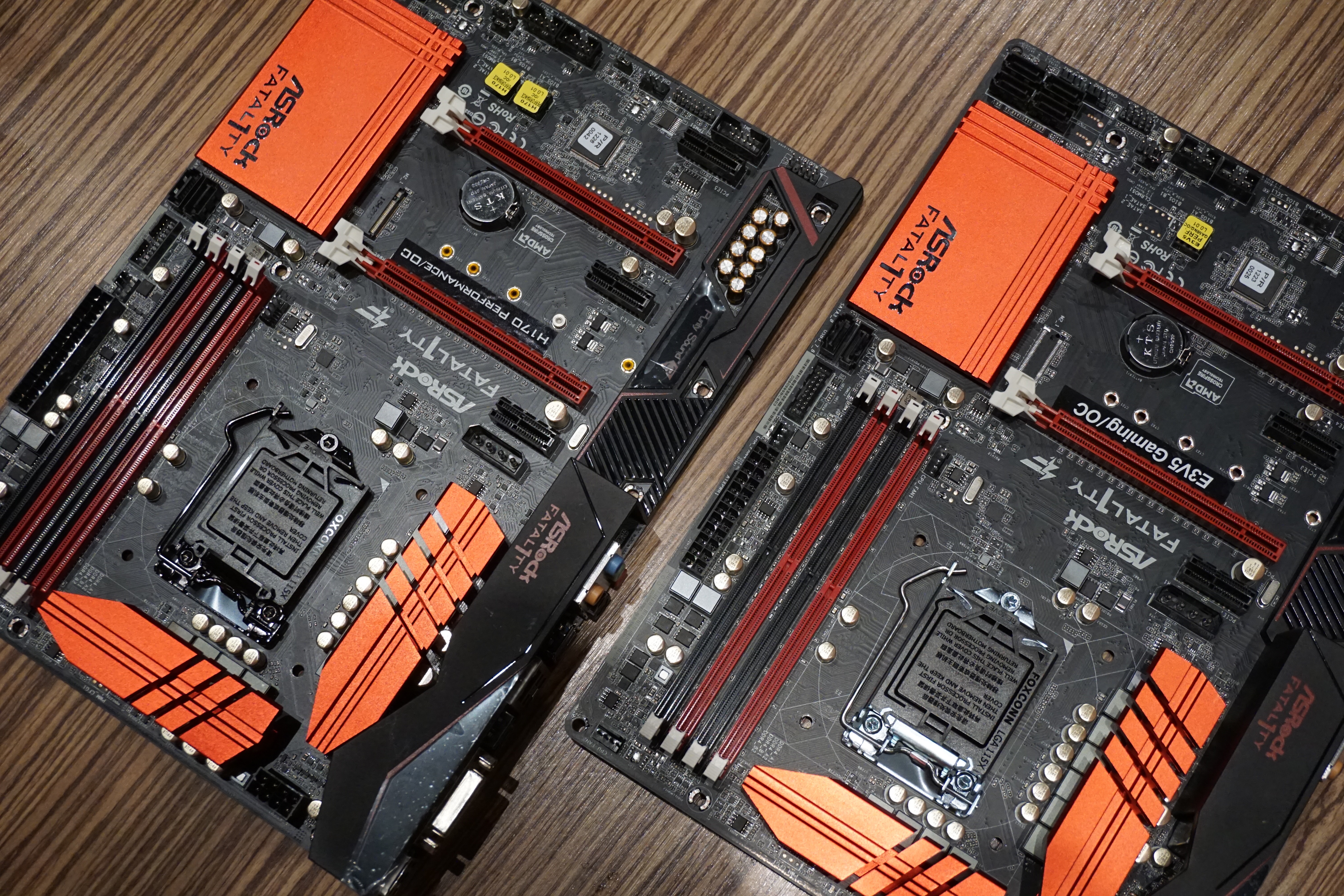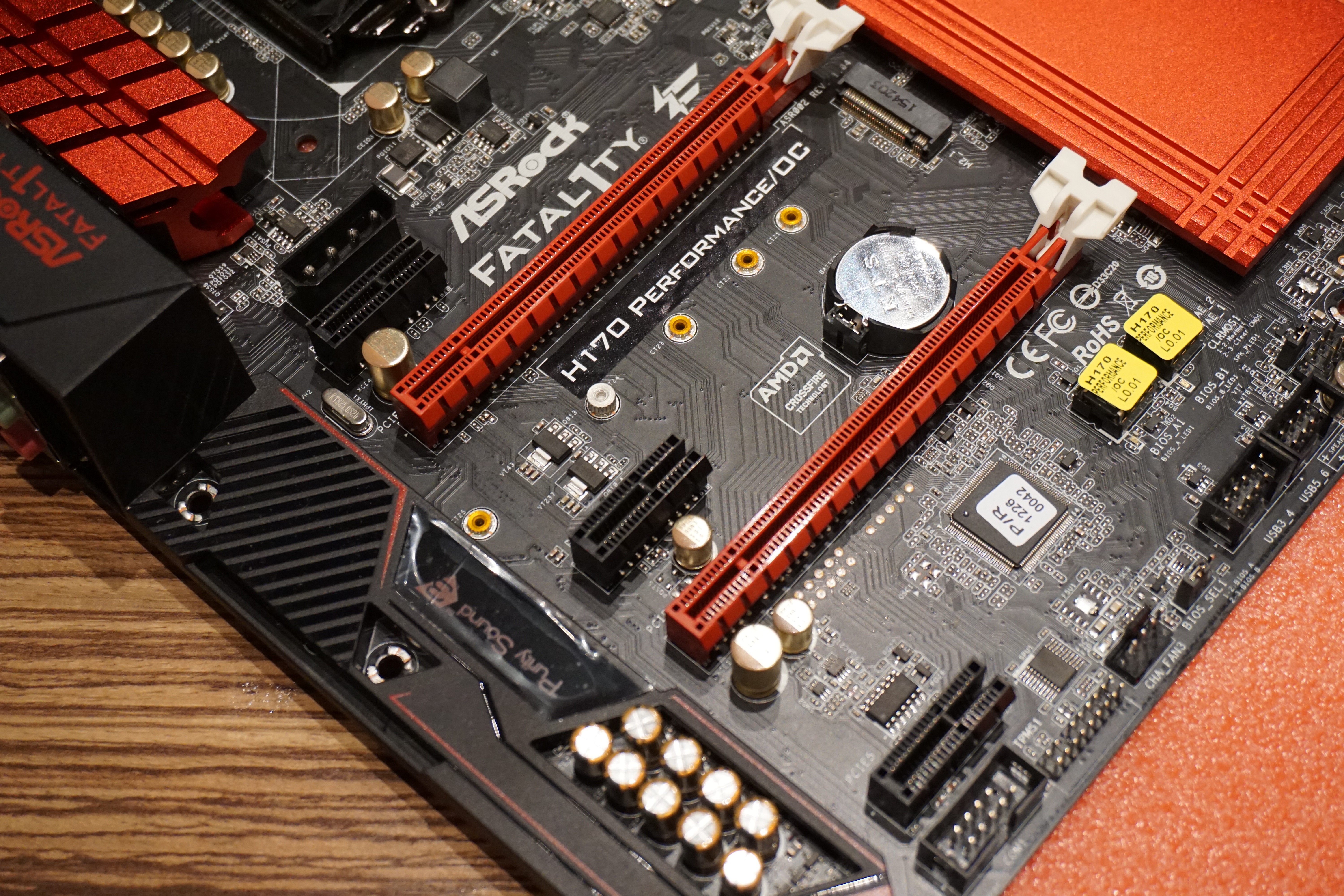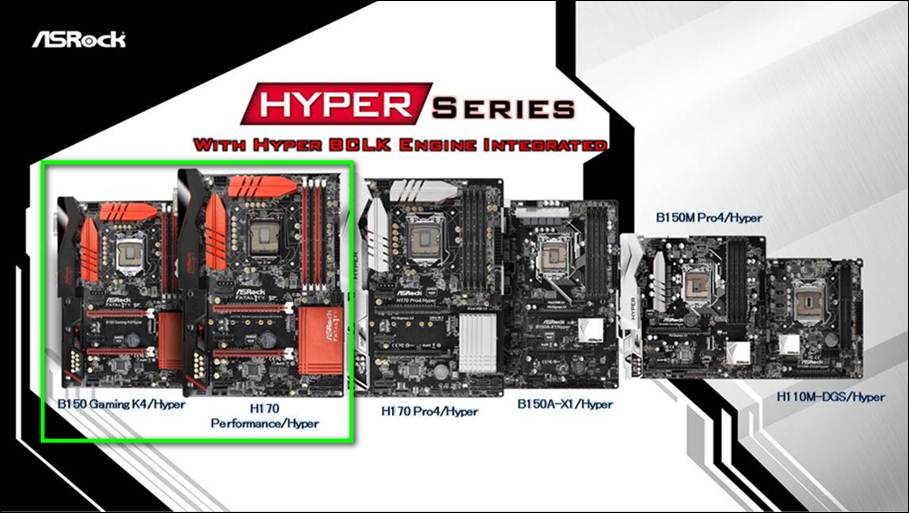Everything We Know About Intel's Skylake Platform
Intel's Skylake architecture and corresponding platform represent a huge evolution in connectivity, overclocking and, ultimately, system performance. This resource should help answer any questions you have about the company's current desktop PC design.
Overclocking
As it created previously, Intel has a couple of Skylake-based CPUs with unlocked clock multipliers (the K-series SKUs). These can be overclocked by simply increasing the ratio on a Z170 motherboard. The company also made changes to its PCH that again enable BCLK-based overclocking as well.
As a result, some motherboard vendors are trying to arm their platforms with the ability to overclock non-K-series CPUs, and to make some of Intel's other chipsets overclock as well. Although these capabilities would be immensely popular among enthusiasts, there are a few problems with trying to tune multiplier-locked Skylake-based CPUs.
For instance, once the BCLK of a non-K-series processor rises above its stock 100MHz, certain power-saving features, Turbo Boost and specific instructions no longer work. Thus far, this happens on all motherboards capable of overclocking non-K-series processors, regardless of chipset. The board vendors are forced to disable those features while overclocking to ensure stability. Their loss isn't debilitating, especially since power-saving features are often disabled as part of an overclock anyways. However, we know nobody likes restrictions imposed on them forcibly.
Supermicro
Currently, there are only two companies with motherboards capable of overclocking non-K-series CPUs. Supermicro was first on the scene, and it also has a platform that can overclock based on a chipset other than Z170. Its C7H170-M employs the H170 PCH and is built a lot like competing Z170 boards. As of this writing, the company doesn't have any other boards capable of overclocking non-K-series CPUs.
ASRock's Shifting Position
ASRock also has non-Z170 motherboards capable of overclocking non-K-series Skylake CPUs, but they've been hit by several setbacks. ASRock initially announced “Sky OC” both as a feature for Z170 boards and as a family of overclockable non-Z170 motherboards. Thus, any product with the Sky OC feature was able to overclock non-K processors, and the boards based on chipsets other than Z170 could overclock K-series CPUs using BCLK adjustments as well.
Not long after ASRock announced these boards, the company contacted Tom’s Hardware to let us know it abandoned their development under pressure from Intel. It was also forced to remove the Sky OC feature from its Z170 motherboards.
The quote went a little something like, “ASRock has decided to remove SKY OC technology from these motherboards’ feature lists since it is not compliant with Intel Skylake CPU specifications.”
Get Tom's Hardware's best news and in-depth reviews, straight to your inbox.
We expected that to be the end of ASRock’s venture into overclocking non-K-series CPUs and overclockable non-Z170 chipsets, but then the company released its cancelled C232 Fatal1ty E3V5 Performance Gaming/OC board. It also announced its new “Hyper” family of non-Z170 motherboards able to overclock non-K-series processors using BCLK manipulation. Currently, the C232 Fatal1ty E3V5 Performance Gaming/OC is the only one of these boards available for sale online. The others may materialize in time, but it's also possible that Intel again applied pressure to stop their introduction.
Fallen Attempts At Non-K OC
Biostar tried to arm its motherboards with the ability to overclock non-K CPUs using a BIOS update for its Z170 boards. The approach was similar to the way ASRock enabled Sky OC. And like ASRock, Biostar removed the feature through another BIOS build that included new microcode from Intel.
According to a representative, “Intel regularly issues updates for our processors which our partners voluntarily incorporate into their BIOS. The latest update provided to partners includes, among other things, code that aligns with the position that we do not recommend overclocking processors that have not been designed to do so. Additionally, Intel does not warranty the operation of the processor beyond its specifications.”
Supermicro does not appear to have applied this update to its C7H170-M motherboard, but that could be just a matter of time. Technically, all of these boards are still able to overclock non-K CPUs, though to do so requires an outdated BIOS that might have other issues. This makes unsanctioned overclocking essentially dead.
Current page: Overclocking
Prev Page Memory And Bandwidth Next Page Are You Looking At A Skylake Motherboard?-
Captainawzome Reply
Thanks! Sadly, this page does not explain the nuances of other factors such as overclocking potential, and the probability of getting a skylake CPU that overclocks to 4.6, 4.8, etc17734443 said:Intel's Skylake architecture and corresponding platform represent a huge evolution in connectivity, overclocking and, ultimately, system performance. This resource should help answer any questions you have about the company's current desktop PC design.
Everything We Know About Intel's Skylake Platform : Read more
Very informational though! :)
-
logainofhades I suspect that if Zen is in any way successful, Intel will back off a bit, on the non z overclock stance. If they price a chip that is competitive, say at least on the same single threaded performance level as Haswell, with a locked i3 or i5, AMD will get a much needed boost in sales. I honestly hope something like this happens. This one side dominating completely, is bad for consumers.Reply -
IInuyasha74 Reply17734455 said:
Thanks! Sadly, this page does not explain the nuances of other factors such as overclocking potential, and the probability of getting a skylake CPU that overclocks to 4.6, 4.8, etc17734443 said:Intel's Skylake architecture and corresponding platform represent a huge evolution in connectivity, overclocking and, ultimately, system performance. This resource should help answer any questions you have about the company's current desktop PC design.
Everything We Know About Intel's Skylake Platform : Read more
Very informational though! :)
Well you see, it is hard to put a number on that which would hold up reliably. Overclocking chips could land just about anywhere, and without testing dozens of samples we couldn't come up with an average overclock that Skylake seems to be able to hit that would hold up well enough. -
kunstderfugue Hopefully the competition later this year makes Intel reconsider the way they're treating their consumers.Reply -
logainofhades Yea, I have not been very happy with Intel, since Skylake released. The Xeon chipset part, in particular, irked me. The whole launch has been a disaster of confusion. Glad this article was made to clear some things up.Reply -
TJ Hooker ASUS, MSI, and Gigabyte all ventured into non-k overclocking on their Z170 boards as well. The BIOSs that enabled it may have been labelled as betas, and I'm not sure if they're available through official channels anymore. But if Biostar gets a mention for releasing and then retracting non-k OC, I don't know why these other manufacturers aren't brought up.Reply
Another drawback of non-k BCLK OC is that CPU core temperature can no longer be read.
Lastly, another potential topic to add is the subject of DDR4 at speeds greater than 2133 MHz. I've seen many forum questions about what CPU/mobo support for running 2400+ MHz DDR4. I'm under the impression that you need a Z170 mobo (I could be wrong), I've seen people say you need an unlocked CPU (from personal experience I know this is wrong), could be handy to add a section to clear this up. -
josejones I am far more interested in articles about the soon to come Z270 motherboardsReply
200-Series Union Point Motherboards
http://www.tomshardware.com/forum/id-2983311/200-series-union-point-motherboards.html -
Jaran Gaarder Heggen Interresting article, but can you please add chipset for dual cpu xeon also in the Workstation area?Reply
-
hixbot ReplyI am far more interested in articles about the soon to come Z270 motherboards
You will be lucky to see Kaby Lake mobile before the end of 2016. It will be mid 2017 at the earliest before consumers can get their hands on desktop motherboards with Union Point.
200-Series Union Point Motherboards
http://www.tomshardware.com/forum/id-2983311/200-series-union-point-motherboards.html
Very hard to expect a detailed breakdown of that platform at this time.
